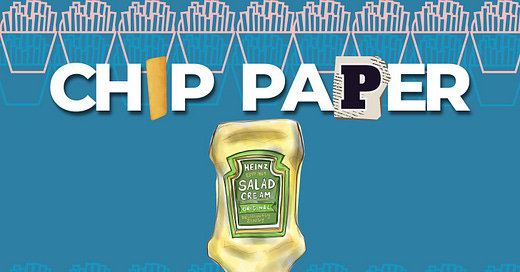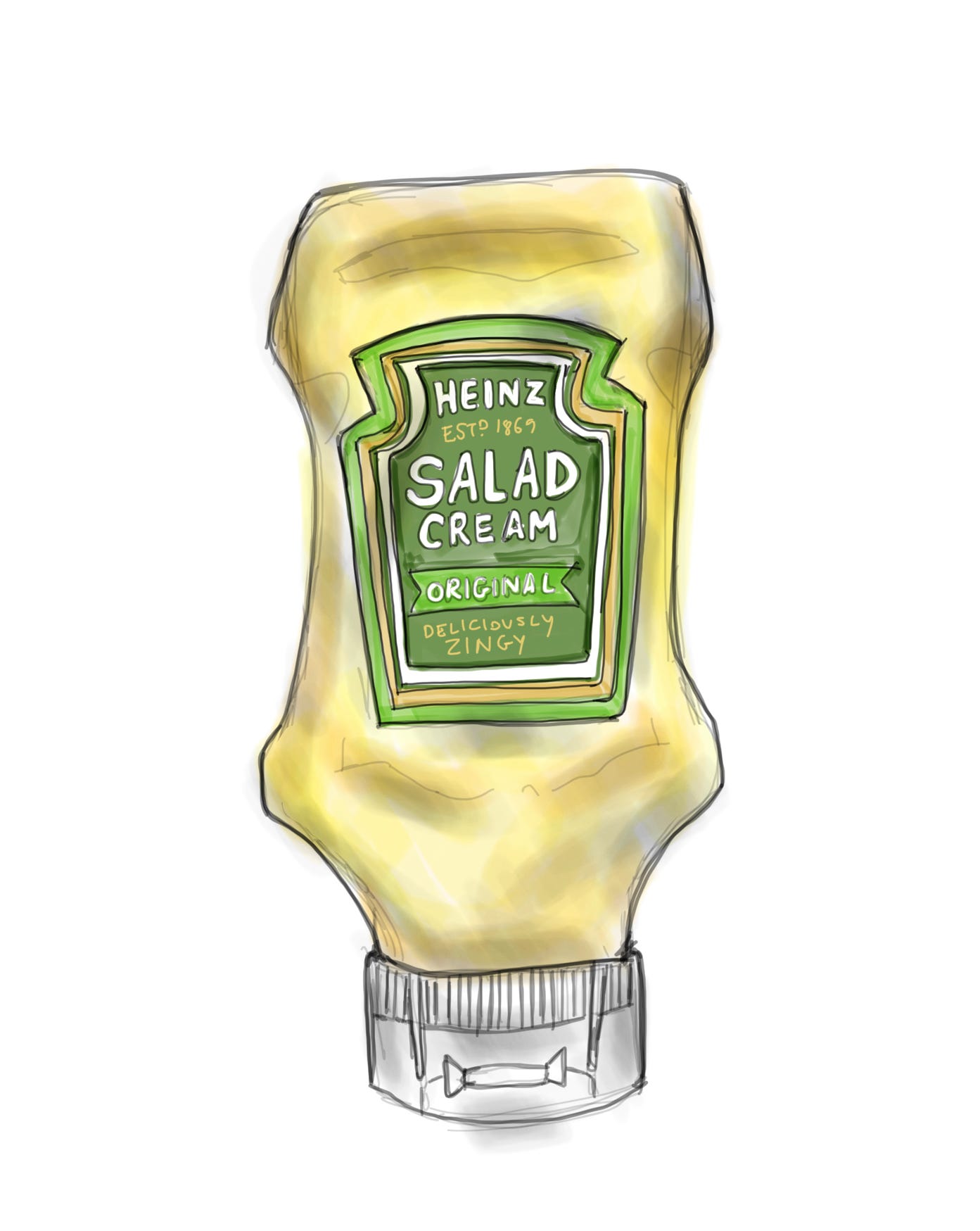Condiment Curiosity: Salad Cream
Heinz's "deliciously zingy" dressing (or is it a sandwich spread?) developed for the UK market has lasted over a century and survived several near-deaths. Let's deep dive into Salad Cream...
If mayonnaise be the Boomer of condiments, Salad Cream is the Millennial. In fact, it’s a middle child Millennial. Stepping out of the shadow - and out of line often - it ruffles feathers, sitting in stark difference to its self-effacing mother sauce though they’re far more alike than they profess. Salad Cream is showier and more attention-seeking, mixing with the marketing set far too often for its own good and definitely never dresses age-appropriately.
Salad Cream has the benefit of cutting its teeth in a more open world of condiments, with a more worldly, diverse grasp on flavour. Salad Cream believes it knows it all and is well-loved by one and all, of course, but in actual fact it’s so often an afterthought, forgotten and even dismissed. It’s misunderstood yet at pains to carve out its own space.
What would Gen Z be as a condiment? Sriracha? Sriracha just stares blankly at both of them like they’re one and the same, but also regularly reminds them their friend’s Mom - Kewpie - is way cooler and more desirable.
Origins of Salad Cream: British-Born, American-Marketed
Salad Cream is renowned as an intrinsically “British” condiment and the marketing around it is that it was created specifically with the British palate in mind, but much to the contrary Heinz didn’t invent Salad Cream, the American company just standardised and scaled it up into a branded product. Before Heinz put it on shelves, it was a recipe idea out there in the ether. William Kitchener first recorded it in one of the early editions of his book The Cook’s Oracle as far back as 1817, then followed later by both Eliza Acton penning her take (called ‘English Sauce’) and Mrs. Beeton who communicated it as more of a dressing, with spoons of cold cream in it, both around the 1840s.
Keep reading with a 7-day free trial
Subscribe to Chip Paper to keep reading this post and get 7 days of free access to the full post archives.





